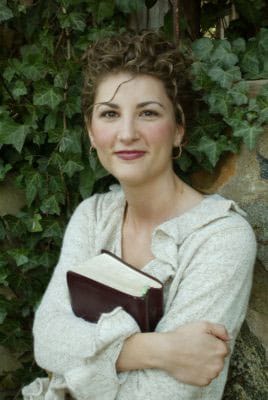Podcast: Play in new window | Download (Duration: 53:30 — 35.1MB) | Embed
Subscribe: Apple Podcasts | Spotify | Amazon Music | Android | Pandora | iHeartRadio | JioSaavn | Podchaser | Gaana | Podcast Index | Email | TuneIn | Deezer | Anghami | RSS | More

The pulse of life within my wrist / A fallen snow, a rising mist / There is no higher praise than this / And my soul wells up / O my soul wells up / Yes my soul wells up with hallelujahs.
Oh praise Him all His mighty works / There is no language where you can’t be heard / Your song goes out to all the earth / Hallelujah, hallelujah, hallelujah! / O hallelujah, hallelujah, hallelujah!
Songwriters: CHRIS RICE, CHRISTOPHER M. RICE © Warner/Chappell Music, Inc.
For other episodes in this series, visit the Discerning Hearts Sonja Corbitt page
Scripture References for The Show
Luke 1:46-55, the words of the Magnificat
And Mary said:
“My soul magnifies the Lord,
47 and my spirit rejoices in God my Savior,
48 for he has regarded the low estate of his handmaiden.
For behold, henceforth all generations will call me blessed;
49 for he who is mighty has done great things for me,
and holy is his name.
50 And his mercy is on those who fear him
from generation to generation.
51 He has shown strength with his arm,
he has scattered the proud in the imagination of their hearts,
52 he has put down the mighty from their thrones,
and exalted those of low degree;
53 he has filled the hungry with good things,
and the rich he has sent empty away.
54 He has helped his servant Israel,
in remembrance of his mercy,
55 as he spoke to our fathers,
to Abraham and to his posterity for ever.”
Song in the Bible
Song of Creation
- Job 38:6-7, The angels sang at the creation of the cosmos.
- Psalm 19:1-4, All creation sings praise simply by being what it was made to be.
- Zephaniah 3:17, God Himself sings and dances (“rejoices”) over His people in a new, spiritual creation.
- (NAB-A) The LORD, your God, is in your midst, a mighty savior; He will rejoice over you with gladness, and renew you in his love, He will sing joyfully because of you,
- (NJB) Yahweh your God is there with you, the warrior-Saviour. He will rejoice over you with happy song, he will renew you by his love, he will dance with shouts of joy for you,
- (RSV-CE) The LORD, your God, is in your midst, a warrior who gives victory; he will rejoice over you with gladness, he will renew you in his love; he will exult over you with loud singing
- “Rejoice” is translated from a Hebrew word, a primitive root; properly to spin around (under the influence of any violent emotion), that is, usually rejoice… : – be glad, joy, be joyful, rejoice.
- The Hebrew word means to “spin around under violent emotion,” or basically to dance. So Zep 3:17 is more accurately translated as, “Yahweh your God in your midst, the Mighty One, will save; He will rejoice over you with gladness, He will quiet you with His Love, He will dance over you with singing.”
- “My spirit rejoices in God my Savior…” (Luke 1:47).
Song of the Soul
- Luke 1:46-55, Mary’s Magnificat
- Psalms – a psalm is a song
- Song of Songs, the song of all songs, the song of the soul and God
- Song 8:10, “Then I became in his eyes as one who found peace.” Peace means consummation in this context, and it is found in His song of fire-love for you (8:6, 10).
EPISODE RESOURCES
I Wrestled with God and Won article on Jacob’s confrontation with God at the Jabbok river
Discussion of the significance of Esau selling his birthright is located in chapter three of Unleashed.
Catechism of the Catholic Church (CCC) 63, Israel is the priestly people of God, “called by the name of the LORD”, and “the first to hear the word of God”, the people of “elder brethren” in the faith of Abraham.
CCC 877, In fact, from the beginning of his ministry, the Lord Jesus instituted the Twelve as “the seeds of the new Israel and the beginning of the sacred hierarchy.”
LOVE the Word(TM) is a Bible study method based on Mary’s own practice. This week’s LOVE the Word(TM) exercise is based on an Thomistic* personality approach. Go on! Try it!
Listen (Receive the Word)
“The heavens are telling the glory of God; and the firmament proclaims his handiwork. Day to day pours forth speech, and night to night declares knowledge. There is no speech, nor are there words; their voice is not heard; yet their voice goes out through all the earth, and their words to the end of the world” (Ps 19:1-4).
Observe (Connect the passage to recent events.)
Study carefully these verses of praise, themselves a song, like the Magnificat.
Who and what is this psalm about?
Where and when does this song take place?
Why and how is praise occurring?
Verbalize (Pray about your thoughts and emotions.)
Who, what, where, when, why and how, do you want to thank and praise God for right now?
Entrust (May it be done to me according to your word!)
Lord, you are my beloved, and I am yours…there is no higher praise than this…hallelujah…
*LOVE the Word(TM) exercises, vary weekly according to the four personalities, or “prayer forms,” explored in Prayer and Temperament, by Chester Michael and Marie Norrisey: Ignatian, Augustinian, Franciscan, and Thomistic.




